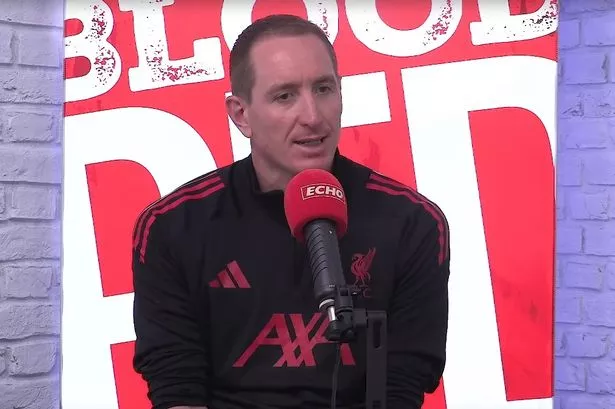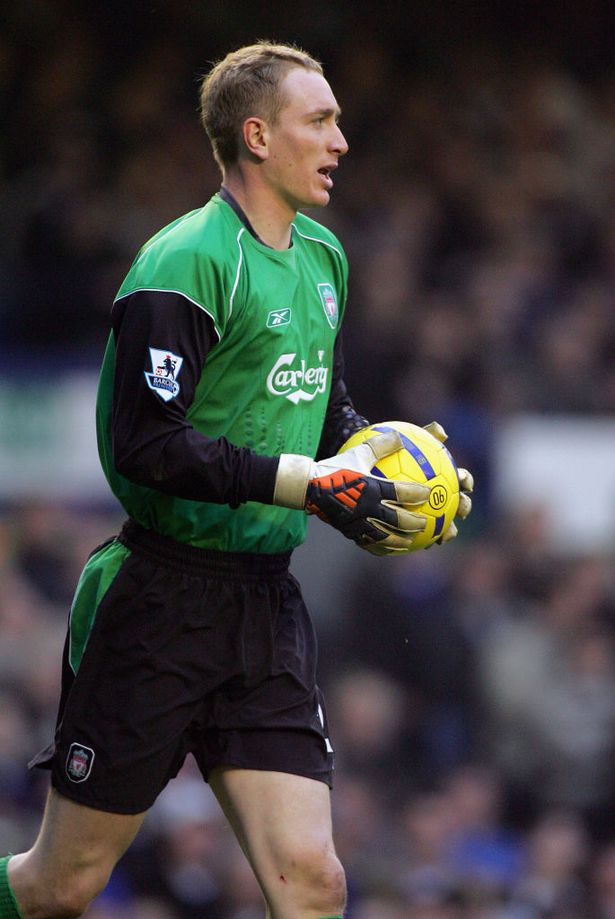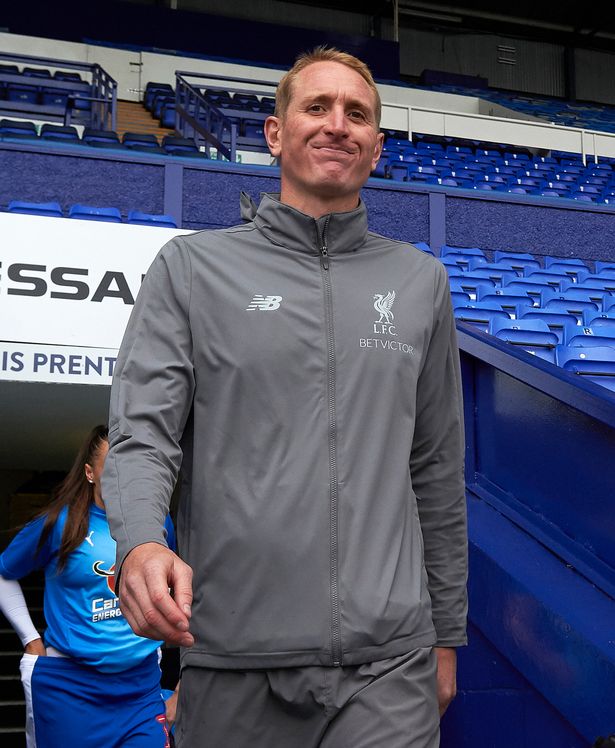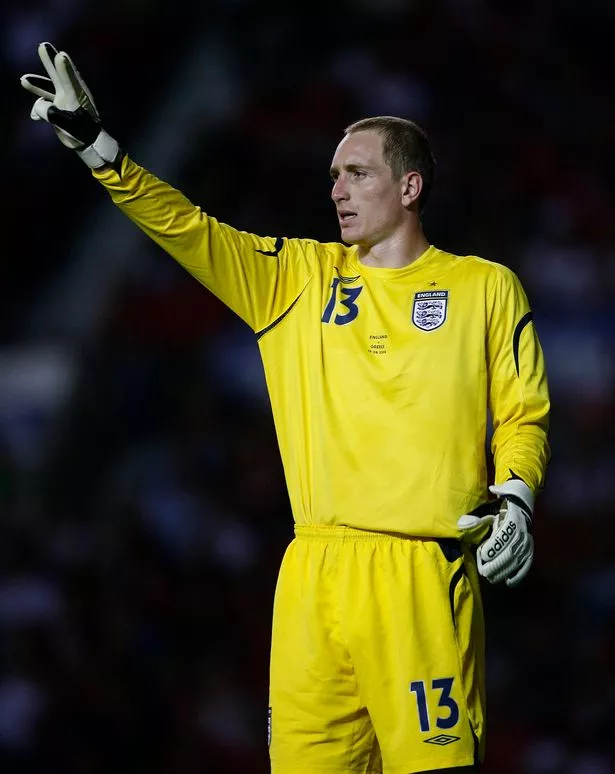I lived Liverpool dream but addiction hell ended my career - I thought I was going to die
View 4 Images

Chris Kirkland lived the dream, but the latter stages of his football career and initial years of retirement were a living nightmare.
A boyhood Liverpool supporter, the one-time England international was just 20 years old when he joined his beloved Reds and became the most expensive goalkeeper in British history in August 2001.
He would spend five seasons at Anfield, making 45 appearances and playing his part in the club’s road to Istanbul as they famously won the Champions League in 2005, beating AC Milan on penalties after an astonishing comeback in the European Cup's greatest ever final. While untimely injuries ultimately stopped him from becoming first-choice at Liverpool, he can look back on his Reds career with pride.
A move to Wigan Athletic followed in 2006 and he was the Latics’ number one for four seasons in the Premier League as he enjoyed the best years of his career.
But the wheels started to come off for Kirkland after joining Sheffield Wednesday in the summer of 2012. Already battling anxiety, it was during his time with the Owls that he first developed an addiction to painkillers that left him fearing for his life.
“It took me ten years to admit the truth,” the 44-year-old said exclusively to ‘Blood Red’, the Liverpool ECHO and Reach PLC’s new monthly publication . “Yes, I retired in 2016 through mental health, but I never said anything about the addiction until three and a half years ago.
“People say you should never have regrets, but my biggest one is not saying it earlier. Back in 2012, 2013, when I started to really struggle, particularly with the addiction, I kept it to myself.
“And for the next ten years, it affected me. I obviously had to retire from football at 35. I could have carried on. I was fit enough. But mentally I was just shot to bits and the addiction was doing that.”
Kirkland has been open about his battle with addiction and depression in the years since hanging up his gloves.
But he’s now set to tell his story in his autobiography, ‘ 'Keeping It Quiet' - The Chris Kirkland Story’. And ahead of its release, published by Terrace Tales on November 17, the 44-year-old sat down exclusively with ‘Blood Red’ , for a no-holds-barred interview.
“It’s the hardest thing to do, to admit that you're struggling with whatever it is,” he said. “It took me to get to rock bottom before I eventually did.
“It's so hard to stop, and if you've not got support around you, it is almost impossible. Addiction is extremely tough. It takes over your life. It's the first thing I thought about in the morning, the last thing at night.
“I knew I was addicted pretty quick, but by then you need to feed the addiction. It's one of the most powerful things that takes over everything. I was planning when to take them, where to take and where to hide them, when to get them, where I was going to get from. Eventually off the internet as well on the dark market. That's what the addiction does.
“And you know it's wrong. You know what you're doing is wrong. It's almost impossible. I tried many times to stop myself, but you always go back because you know that you can get away with it and you know nobody knows.
“That’s why I came out and told the world , not for sympathy, but just for the fact that I didn't want a hiding place.”
View 4 Images

Given his struggles with injury throughout his career, it would be easy to assume such issues were the cause of Kirkland’s painkiller addiction. But that is only part of the story. Instead, his anxiety after moving to Sheffield Wednesday ultimately led him down the darkest of paths.
“I went to Sheffield Wednesday, the routine of being away from home, being away from Liverpool, commuting, I was anxious,” he recalled. “I just didn't want to leave home.
“So going from being at Liverpool for five years, Wigan for six, same house, same routine, daughter was born, dropped off at nursery, dropped off at school, went to the school plays, walked the dogs in the afternoon. All that I'd been used to was gone.
“Because I was in the car to and from Sheffield. I just couldn't handle the change of everything apart from the football. The football's still the same, the training, but everything else was gone and I was getting anxious about leaving the house.
“I got a slight twinge before the first game because I was anxious. And I got hold of some pills and what they did was they made me less anxious.
“So I thought, when you feel better with something, right or wrong, you stick to it. So I did. And I thought, ‘I'll just take these when I'm going to and from Sheffield, when I am staying away from home’.
“But very quickly the addiction gets hold of you. So yes, it was (because of injury), but I was taking them because they were helping me with anxiety, which is mad because they're not meant to do that.
“Some people are sick on them, some people can't take them, some people feel great, but they made me feel less anxious and they made me feel relaxed, and that's why I quickly got hooked on them.
“After about three-to-six months (I knew it was bad). It was the last thing I was thinking about at night and the first thing in the morning I was thinking about. You know you have become dependent, but then if you did try and stop for a couple of days, the withdrawals are awful.
“So you carry on, and because nobody knew, it just escalated. It got to a point where I was taking well over 2,000 milligrammes a day. The maximum you're meant to take is 400 milligrammes a day and not for a prolonged period.
“I was on well over 2,000, plus what you can get over the counter in the pharmacy because one's not enough, then two's not enough, and three's not enough.
“So you just keep adding and adding and adding. They should have killed me, the amount I was taking. They said my fitness helped me take that amount. But it should have certainly killed me, the amount I was taking.”
View 4 Images

Kirkland joined Bury in June 2016, but left the club before the season started as he continued to struggle with his demons and decided to hang up his gloves.
For the next six years, he was on and off the pills as he struggled with retirement and the Coronavirus pandemic on top of his addiction. But in April 2022, everything changed after a bad reaction to some pills left Kirkland fearing he was going to die.
“In 2016 I retired. I just didn't want to do anything more,” he recalled. “I didn't want to live. They messed me up that much. Everything was just a headache.
“I just couldn't think straight. I didn't want to do anything. I didn't want to play football anymore, something I’d done for 19 years. So I retired, went to the PFA. Neil Mellor actually helped. He said the PFA have got a player welfare thing. So I gave them a call.
“Went to them. Got off them for about six months, eight months. Then I started to miss being a footballer, miss the routine of being a footballer so I went back on them. Nobody really knew apart from the PFA. Not my family, my wife sort of had an idea but friends and family didn't.
“Then in 2019 I was again at the height of the addiction. I went to rehab, again I didn't tell anybody. My wife obviously knew the extent this time, and a couple of friends. Went to rehab, got off them and everything was good again for about eight months and then lockdown hit.
“And lockdown was an extremely tough time, so I ended up going back on them because we were isolated, couldn't do the things you want to do, you're in the house.
“So I went back on them. My wife didn't know this time, she didn't know I was back on them. I was hiding them and it was easier because if she said, are you all right? I'd say, ‘Well we're in lockdown, I'm miserable like everybody else.’
“And then it wasn't until 2022. So April 17, I woke up, I'd got some off the internet. I was hyperventilating, my heart was pounding, I forgot who I was.
“I got home, my wife just said I was violently ill, violently sick and then I went to bed and woke up like 15 hours later and that's the morning of April the 18th when I woke up and thought ‘I need to tell her again now, I need to tell everyone or else I'm gonna die’.
“Because I thought I was gonna die the day before, I thought that was the end for me. So I did, I woke up and said I'm addicted to them again.
“She sort of had an idea but she said I needed you to tell me. And that's when we came out and told everyone, that's where we put things in place, and thankfully, touch wood, it's been three and a half years now.
View 4 Images

“I did (consider taking my own life), the addiction was having a massive effect on that (my mental health). Yes, I was anxious, but then the painkillers were just… eventually they don't do what they're meant to do.
“And then they just mess you up mentally. That's all I can put it as. And I just thought I can't feel like this for the rest of my life because I just felt the worst ever. I just didn't want to do anything.
“My head was pounding all the time. People would talk to me and I couldn't really take it in, what they were saying. I had no enjoyment in anything at all. And I just thought, ‘This can't be it. This can't be me.’ So you start to have those thoughts.
“And thankfully I never did because, when I was thinking about it, I was just thinking straight about my wife and my daughter, growing up without their husband or dad.
“I know people obviously get to that stage where, and tragically and devastatingly, they do it. The thought of people having to do that and wanting to do that because they think there's no way out, it’s just so upsetting and devastating.
“But this is why I speak the way I do. I think you've got to be as honest as you can. You're not going to be able to help and save everybody because that's just the world we live in.
“It's just a horrible place and people just find it too much at times. But if you can help those few to speak up and get help and prevent things from happening, that's what we do it for.
“I'm not gonna say I don't have bad days, like we all do. Some days you just, you’ve just got to get through those days, but thankfully now, I'm in a really good, steady place.”
If you're struggling and need to talk, the Samaritans operate a free helpline open 24/7 on 116 123.
Alternatively, you can email jo@samaritans.org or visit their site to find your local branch.
Chris Kirkland’s autobiography, ‘'Keeping It Quiet' - The Chris Kirkland Story’ , is out now. Order your copy at www.curtis-sport.com .
This article appears in the November edition of the Blood Red magazine - order your copy here
Sky has slashed the price of its Essential TV and Sky Sports bundle ahead of the 2025/26 season, saving members £336 and offering more than 1,400 live matches across the Premier League, EFL and more.